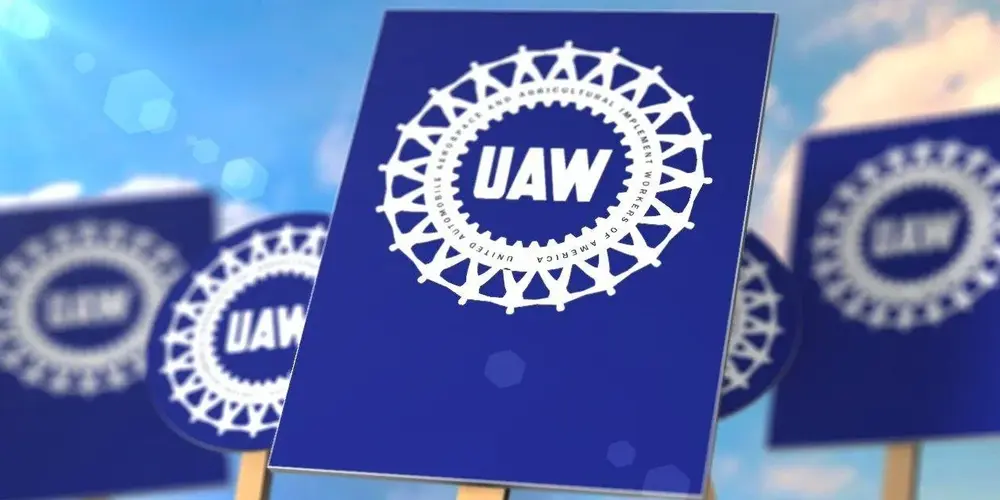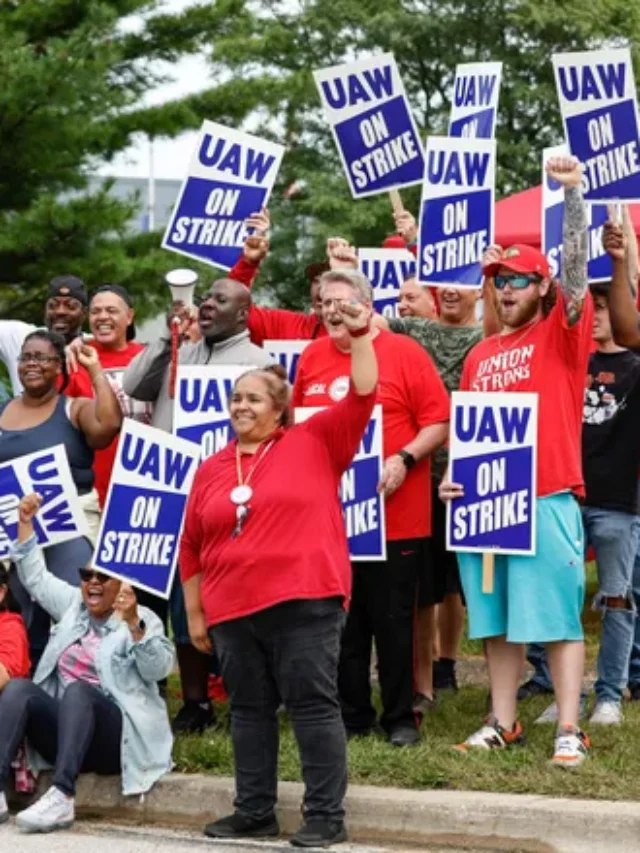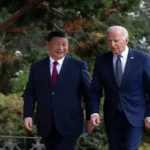The historic United Auto Workers (UAW) strike against the Big Three Automakers continue, revealing growing concerns among UAW members about their future. President Biden, who claims to be the most pro-union president in history, faces criticism as his policies negatively affect the workers he vowed to support.
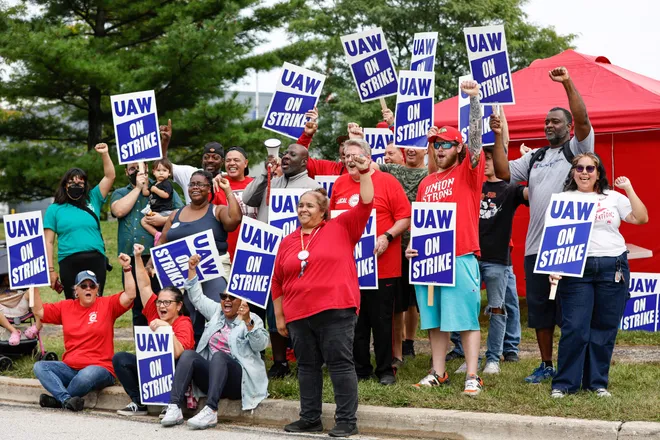
UAW members strike in Center Line, Mich., on Sept. 22, 2023.
1. Inflation vs. Wage Growth
Under their current contract, UAW members have witnessed a mere 6% increase in their pay since 2019. However, inflation has surged by a staggering 17% since the start of the Biden administration in 2021. This disconnect between wage growth and rising living costs is causing financial strain for UAW members, echoing the struggles of many Americans.
2. Burdensome Federal Regulations
Federal manufacturing regulations have spiraled out of control, impacting various manufacturing businesses. In response, 131 organizations formed the Manufacturers for Sensible Regulations coalition to counter the influx of new regulations affecting their industries. Companies claim they would be willing to pay their workers more and hire additional employees if the regulatory burden were lighter.
3. The Threat of Electric Vehicle Policies
The Biden administration is actively promoting electric vehicle (EV) policies, raising concerns among autoworkers about potential job losses. One proposed Environmental Protection Agency rule could eliminate a substantial 117,000 autoworker jobs by incentivizing Americans to purchase electric vehicles, which require less labor to assemble than traditional vehicles.
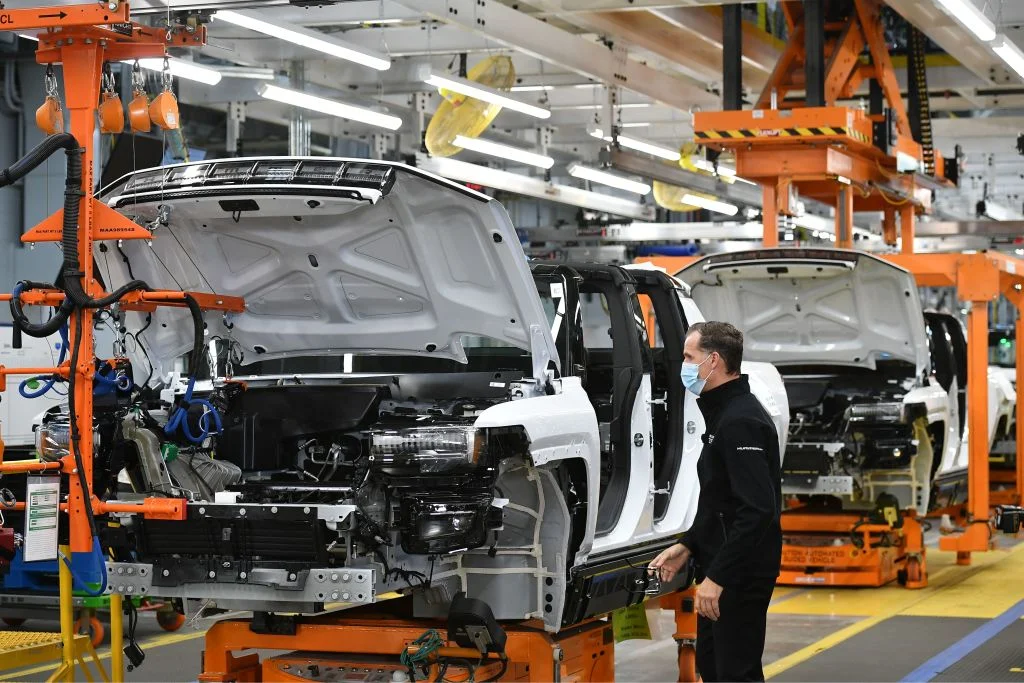
In UAW’s Negotiations With the Big Three Automakers, Ending Tiers Is a Central Demand
4. The Inflation Reduction Act
"The UAW supported Biden in 2020 and enthusiastically endorsed his Inflation Reduction Act, despite the fact that it included electric vehicle subsidies that are accelerating the elimination of union jobs."@Linda_McMahon @A1Policy @terry_bowman @Inst4AWhttps://t.co/Kydzp2Ly8I
— Institute For The American Worker (@Inst4AW) October 2, 2023
President Biden’s Inflation Reduction Act includes subsidies of up to $7,500 for each electric vehicle sold, further expediting the transition from conventional vehicles and affecting union jobs. Critics argue that this rapid transition disregards the interests of American workers.
5. UAW Leadership’s Role
UAW members have found themselves in a precarious situation, with union leadership seemingly complicit in erasing their jobs. UAW leaders have supported politicians, policies, and contract terms that may ultimately harm their members in the long run.
6. The Importance of Stable Contracts
Many autoworkers consider their jobs as generational, meant to be passed down to their descendants. Like all workers, UAW members deserve contracts that adjust to inflation, provide stable, well-paying jobs, and enable them to support their families. These contracts should also facilitate company growth to create opportunities for future generations.
7. Balancing Negotiations
Negotiations in the auto industry must strike a delicate balance. Excessive demands could lead to major significant auto companies’ bankruptcy, jeopardizing all autoworkers’ job security. UAW leadership is responsible for preserving members’ jobs by securing reasonable raises that enhance living standards without jeopardizing long-term job security.
8. Targeting the Real Problem: Bidenomics
Biden says he is the most pro-union president ever, but his policies hurt @uaw workers. My latest with @Linda_McMahon at @A1Policy @Inst4AW https://t.co/ZzZpj17FtQ
— Terry Bowman (@terry_bowman) October 2, 2023
UAW leadership should shift their focus to address what they see as the root cause: Bidenomics. Despite endorsing President Biden’s policies, these policies have led to increased inflation, negatively impacting autoworkers whose salaries have failed to keep pace.
9. Declining Membership and Future Prospects
Please prioritize their members’ interests to avoid further declines in UAW membership. Despite industry growth, UAW membership has dwindled from its peak of 1.5 million autoworkers in 1979 to approximately 400,000 workers today, including just 146,000 at the Big Three.
10. Autoworkers Deserve Better
In conclusion, autoworkers deserve leadership that safeguards their economic future rather than pursuing short-term political gains. They also need Washington leadership that prioritizes the interests of the American workforce over all else.
Disclaimer: Insights and contributions courtesy of Linda McMahon, former administrator of the U.S. Small Business Administration, Chair of the America First Policy Institute, and Chair of AFPI’s Center for the American Worker. Terry Bowman is a UAW-represented Ford autoworker and serves as the board chair of the Institute for the American Worker.

